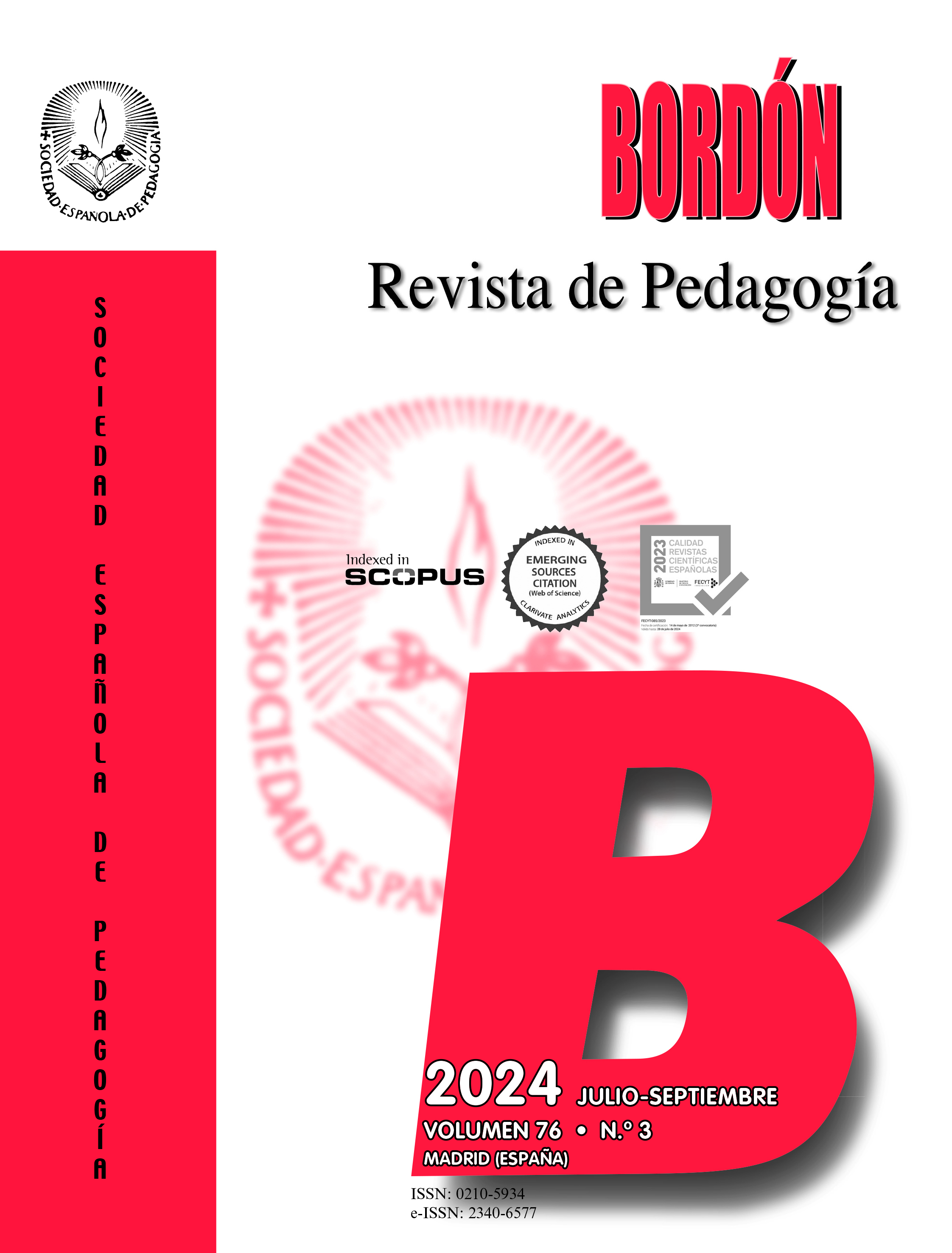Concern about classroom observation in foreign language teachers
Main Article Content
Abstract
INTRODUCTION. The restlessness and concern that observation in the classroom awakens among teachers is a recurring and well-known theme in literature. Observation during their performance arouses fears and misgivings among teachers, even those with more years of experience. The present work explores the feelings that classroom observation awakens in the teacher. METHOD. A unique case study was conducted with in-depth interviews with 14 professors from the Department of Languages at the University. The objective of the interviews was to understand and study in depth the impact of the observations on the teacher and his/her classroom practice,, and to assess the impact of the feedback on their professional development. A qualitative analysis was carried out using software Atlas.ti 6.2. A first phase of initial coding or “open” coding was carried out to identify the most relevant topics or dimensions., followed by a second phase of deductive data analysis, where theory and literature on teacher observation were used. RESULTS. The results confirm the teachers’ feelings of fear and rejection of being observed, as well as a concern about the lack of clear observation standards and criteria. However, teachers feel a gradual reduction of this concern in the face of continuous exposure to observations. DISCUSSION. In line with the results of previous research, the professors interviewed acknowledge that they have altered their normal behavior by feeling observed. Also, as in other studies, there is a positive change in behavior in the student when feeling observed, which tends to become naturalized as the observation progresses.
Downloads
Article Details

This work is licensed under a Creative Commons Attribution-NonCommercial 4.0 International License.
References
Alexander, O. (2023). Fobo: fear of being observed. Making lesson observation less threatening and more developmental. EAP Essentials. https://eap-essentials.com/
Allen, D. W. y Leblanc, A. C. (2005). Collaborative Peer Coaching that improves instruction. The 2+2 Performance Appraisal Model. Corwin Press, a Sage Publication Company.
Bisquerra, R. (2012). Metodología de la investigación educativa. La Muralla.
Boud, D. y Molloy, E. (2013). Feedback in Higher and Professional Education. Understanding it and doing it well. Routledge.
Cipriano, C. y Barnes, T. (2021). The observation of special education classrooms by school personnel. Learning Environments Research 2022, 25, 235-253.
Cortez, M. y Maira, M. P. (2019). Desarrollo de instrumentos de evaluación. Pautas de observación. Centro UC Medición MIDE, Instituto Nacional para la Evaluación de la Educación México.
Ejaz, A., Zaimuariffudin, S., Sayyed, R. y Mansoor, A. (2018). Peer Observation: A Professional Learning Tool for English Language. Teachers in an EFL Institute. World Journal of Education, 8(2), 73-87.
Esteve, O. (2018). La observación en el aula como base para la mejora de la práctica docente. En J. M. Sierra y D. Lasagabaster (eds.), La observación como instrumento para la mejora de la enseñanza-aprendizaje de lenguas (pp. 79-118). Universidad País Vasco.
Gosling, D. (2002). Models of Peer Observation of Teaching. LTSN Generic Centre.
Green, K. y Sanders, M. (1990). The teacher appraisal book. Mary Glasgow Publications Ltd. London.
Harris, H., Parrish, B. y Garson, J. (1992). Peer Observation and Feedback in Teacher Training and Teacher Development. The Journal of TESOL-France, 12(1), 129-140.
James, J. (2022). New assessments and teacher accountability: lessons for teachers’ practice. American Educational Research Journal, 59(2), 252-283.
Jones, M. H. y Gallen, A. M. (2015). Peer observation, feedback and reflection for development of practice in synchronous online teaching. Innovations in Education and Teaching International, 53(6), 616-626. doi: https://doi.org/10.1080/14703297.2015.1025808
Lasagabaster, D. y Sierra, J. M. (2011). Classroom observation: desirable conditions established by teachers. European Journal of Teacher Education, 34(4), 449-463. doi: https://doi.org/10.1080/02619768.2011.587113
Manning, R. (1988). The teacher evaluation handbook. Prentice Hall.
Martínez, A. E., Cruz, A., Bamond, V., Fernández, I. y Strotmann, B. (2018). La observación formativa como instrumento de desarrollo en profesores universitarios en la Universidad Europea de Madrid. Revista Complutense de Educación, 29(4), 1365-1380. https://doi.org/10.5209/RCED.55431
Martínez Vargas, A. E. (2017). La observación formativa como instrumento de desarrollo en profesores universitarios en la Universidad Europea de Madrid (Tesis doctoral, Universidad Europea de Madrid).
McCracken, G. (1988). The long interview (vol. 13). Sage Publications Inc.
Merriam, S. (1988). Qualitative research and case study applications in Education. Jossey-Bass Inc.
Motallebzadeh, K., Hosseinnia, M. y Domskey, J. (2017). Peer observation: A key factor to improve Iranian EFL teachers’ professional development, Cogent Education, 4(1).
Patton, M. (1990). Qualitative evaluation and research methods. Sage.
Pook, C. (2009) Peer Observation: a paradox of professional practice [Tesis de Grado, University of Surrey].
Potter, D.H. (1991) Peer observation and reflection: a strategy for collegial interaction among teachers [Tesis de grado, Universidad de Ohio.]
Richards, J., y Farrel, T. (ed.) (2005). Professional development for language teachers: Strategies for teacher learning. Cambridge University Press.
Rodríguez, G., Gil, J. y García, E. (1999). Metodología de la investigación cualitativa. Ediciones Aljibe S.L.
Ruiz Olabuénaga, J. I. (2012). Metodología de la investigación cualitativa. Universidad de Deusto.
Siddiqua, A. (2019). Classroom observation as a tool for professional development. World of Journal of English Language, 9(1), 49-65.
Thurlings, M., Vermeulen, M., Kreijns, K., Bastiaens, T. y Stijnen, S. (2012). Development of the Teacher Feedback Observation Scheme: evaluating the quality of feedback in peer groups. Journal of Education for teaching, 38(2), 193-208.
Verástegui, M., Úbeda, J. y Manso, J. (2022). Una revisión sobre programas de observación de la práctica educativa. Cuadernos de Investigación Educativa, 13(2).
Withall, J. (1979). Taking the threat out of classroom observation and feedback, Journal of Teacher Education, 30(1), 55-58.
Wragg, E. C. (1987). Teacher appraisal, a practical guide. McMillan Education.

